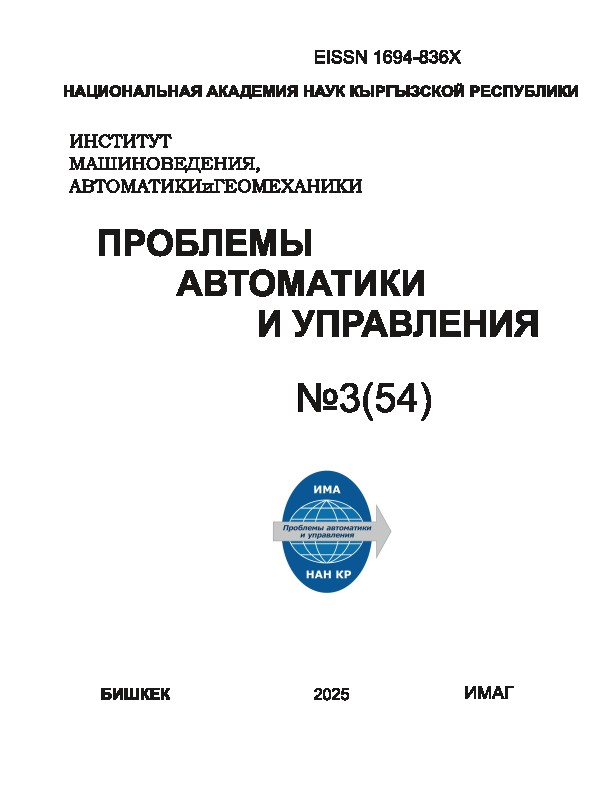About the Journal
AUTOMATION AND CONTROL PROBLEMS
The international scientific and technical journal is published three times a year, founded in 1996. Articles are published in Kyrgyz, Russian and English.
FOUNDER:
Machinery researching and Automatics Institute of Kyrgyz Republic National Academy of Sciences
The journal is registered with the Ministry of Justice of the Kyrgyz Republic. Registration No. 1503 dated March 24, 2020.
ISSN 1694 - 5050 (printed version)
ISSN 1694 - 836X (online version)
The journal is included in the RSCI list and in the HAC list.
REVIEW:
Review type: double-blind.
Number of reviewers: 2
DISTRIBUTION:
Number of issues per year: 3
Distribution method: online only
Distribution Terms: Creative Commons
Publication is free of charge for all the authors.
More about the journal
Editorial team
Contacts:
Kyrgyz Republic, 720071, Bishkek, Chui Avenue, 265.
Machinery researching and Automatics Institute of Kyrgyz Republic National Academy of Sciences, office. 342
Telephone:
+996 553 72 20 30
+996 312 64 26 24
Email:
verzunov@hotmail.com
Announcements
Current Issue


